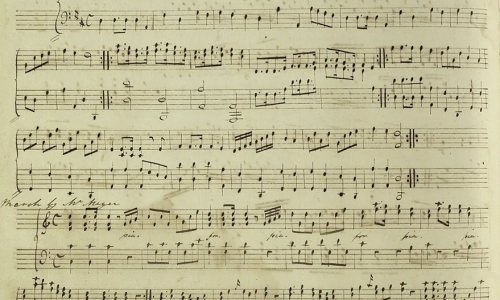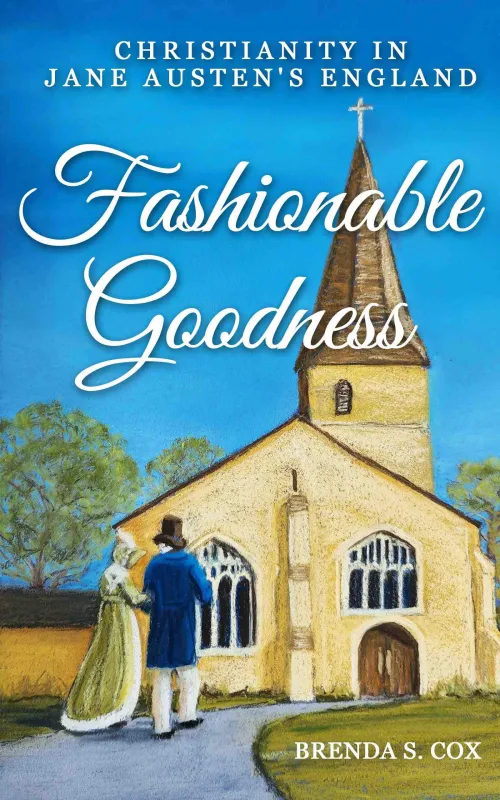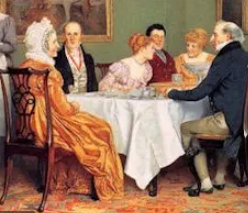Jane Austen’s relationship with music, especially her private morning sessions on the piano forte before her family arose, was as creatively important to her as her writing. Digitized versions of the Jane Austen Music Books are stored on the Southampton UK website, where scholars, musicians, and Austen fans can peruse the music that the family liked and deemed important.
“The Austen Family Music Books is a collection of 18 albums of music containing around 600 pieces that belonged to the 19th century writer and her relations.”
Yet even with these troves of treasures, modern audiences are left to wonder:

This musical score, in Jane Austen’s handwriting, is one of nearly 600 Austen family musical treasures available in an online archive. Jane Austen Museum/Public Domain
“So what kind of music did Jane Austen like to play?
“The line between classical and popular music was very soft in that period,” [Austen scholar Professor Joan] Ray noted. “She lived 1775 to 1817. So she has a lot of popular music but, for example, she had a popular song called ‘William.’ But when music scholars really looked at the 20th and 21st centuries, they discovered it was actually based on Haydn’s Piano Concerto No. 1.”
For as much as Austen loved and collected music, and created characters in her novels who also loved music, she was light on specifics in her novels.” – Discover The Music Jane Austen Loved | Colorado Public Radio
The Colorado Public Radio site provides sample music from movie soundtracks based on Austen’s novels. Interestingly, today’s film composers have only a vague idea of the music Austen specifically liked because of the very few references she made in writing: they had to imagine which music best represented the stories in the time they were written. The 1995 film of Pride and Prejudice used music from Mozart, Haydn, and Schubert: it is still celebrated as one of the best musical scores in an Austen film.
Three Emma film musical scores
The music scorers of following three Emma film adaptations use different approaches to music to tell Austen’s tales of the young, self-important heroine. If you have access to the streaming videos or own the DVDs, you may want to listen to the music and compare how their composers move these plots forward. The scores of each film are suited to the settings and vision of the film director.
- Emma 1996 with Gwynneth Paltrow: Rachel Portman, the female composer for the musical score, won an academy award.
“One of Rachel’s [Portman’s} most well-known film scores was for Emma (1996). Starring Gwyneth Paltrow, this film is an adaptation of the Jane Austen novel of the same name. A light and playful romantic comedy, the film needed the right music to go with it. As FF2 Contributor Sophia Jin says of Rachel’s score for Emma, “Portman’s music feels joyful and lighthearted. It is warming and brings a sense of calm and peace to the picture.” Rachel won an Academy Award for Best Musical or Comedy Score for Emma, making her the first female composer to win an Academy Award in that category.” – Composer Rachel Portman is a Mastermind of Movie Music, International Swans
YouTube video of 3 musical themes from Emma 1996
- Emma 2009, with Romola Garai took an earthier musical approach. In this film adaptation, Highbury was depicted as a relatively unsophisticated country town outside of London. Emma danced to rustic music that could easily be played by local musicians. The costumes also had a more earthy, homemade feel.
Emma 2009: 4 musical themes from the film – YouTube video
- Emma 2020 mixes folksongs that were popular during Austen’s era, with classical, and modern compositions.
The score fits the beautiful, elegant vision of director Autumn de Wilde, who had only directed music videos before tackling a full length feature film.
As with today’s musical tastes, in Austen’s day the line between classical and popular music was ever shifting. She copied the music of “La Marseillaise”, the French National Anthem, and contemporary tunes and folk music that were popular in her day. The Family Music Books show the family’s preferences, but few references were made in Austen’s letters to the music she practiced daily. In her writings, she mentioned only one classical composer – Johann Baptise Cramer. The following YouTube video features his Piano Concerto No 5 in C Minor, Opus 48.
Cramer was credited with renaming Beethoven’s final piano concerto the “Emperor”. Beethoven began composing this Concerto in 1809, while Vienna was under invasion from Napoleon’s forces for the second time.
No documentation exists that Austen heard this concerto in person. After moving to Chawton, Austen visited her brother Henry frequently in London to work on the publication of her novels. Before this period she lived in Bath after her father retired from his living in Steventon. In both cities she regularly attended recitals and concerts, and likely had a more sophisticated exposure to contemporary music, especially to the works that arrived in major cities from the European composers.

Screen shot of Joan Ray’s talk with Carla Walker, host of the Music Room, CPR Classical, Public Radio
Listen to the full discussion at this CPR https://fb.watch/no42mQ7gfS/ Video
The clue to Austen’s love for music was in her daily practice at the piano forte. Her novels also provided clues. Any young lady in her novels who lived in the upper strata of society learned to play the piano forte and/or harp and could give concerts at home events. As for Austen, her morning practices were private. She did not provide entertainment for others in a public situation as some films have suggested. Instead, Austen took quiet comfort and inspiration from her morning musicals. They added as much to her creativity as her writings.
More background information and suggested readings:
- The Literary Hub: Just what you never knew you always wanted: a playlist of Jane Austen’s favorite songs.
- Music and Class in Jane Austen » JASNA: This is an excellent article with far ranging analysis of Austen and her characters in her novels re: their class status. Highly recommended.







